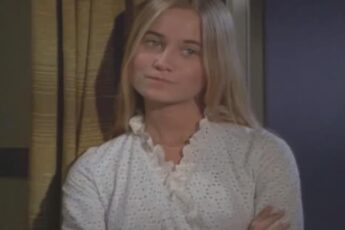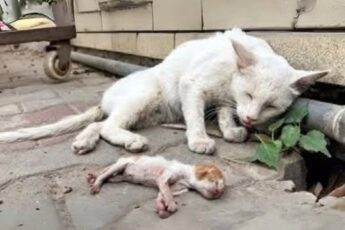Brooke stood silently in the doorway of her grandfather’s bedroom, her eyes tracing the familiar contours of the room that held countless memories. As she inhaled deeply, the scent of old books, mingled with the faint aroma of Granddad Charles’s favorite pipe tobacco and his signature Aqua Velva aftershave, enveloped her like a comforting embrace. It was as if time had paused, and she could almost hear his hearty laugh echoing faintly through the halls, a sound she missed dearly.
“I can’t believe he’s truly gone,” she whispered, her voice barely audible as she ran her hand along the surface of the old oak dresser. Its edges were worn smooth by years of use, testament to the life her grandfather had built and cherished within these walls. She often visited him here, in this very room where wisdom was imparted over steaming cups of tea and board games were played late into the night.
The discovery of her grandfather’s hidden stash inside his mattress had been a shock—one that upended everything she thought she knew about her parents’ tragic death. Each document she uncovered was like a new puzzle piece that, once assembled, revealed a sinister picture of deceit and corruption that extended far beyond her family. The truth was both a burden and a beacon, compelling her to act not just for herself but for the community that was unknowingly caught in the web of lies spun by the Johnson family.
Months after the revelation, the legal proceedings began, transforming the small-town courthouse into a hub of national intrigue. The trial quickly became a media sensation; reporters jostled for position on the courthouse steps, while protesters brandished signs and shouted slogans below the shadow of justice yet to be served.
Inside the austere, cold courtroom, Brooke sat resolutely, confronting her adversary: Mr. Johnson. The prosecution presented a robust case, bolstered by the evidence her meticulous grandfather had amassed over years of quiet investigation. Brooke took the stand, her voice steady yet imbued with emotion, as she recounted the profound emotional and financial hardships her family endured following her parents’ untimely demise. Each word she spoke was a tribute to the pain and resilience of her small family, a poignant reminder of what had been lost.

Yet, beyond recounting cold facts, Brooke shared her personal journey, painting a vivid picture of confusion and determination. “My grandfather never stopped searching for the truth,” she declared, passion sparking in her eyes. “He knew something wasn’t right, and he refused to let it go. I’m here to finish what he started.” Her words resonated in the silent courtroom, a testament not only to her own strength but also to the legacy of her grandfather’s relentless pursuit of justice.
As the trial approached its climax, the intensity of the proceedings only heightened. In a twist of desperation, the Johnson family, known for their financial influence, reached out through their lawyers, seeking a settlement with the District Attorney’s office. Brooke was consulted, but she spurned their offer, a decision driven by principle rather than pecuniary gain. “Money was always how the Johnsons solved things,” she mused internally, her resolve fortified. “Not anymore!”
The case advanced, unyielding, and finally, on the last day, Mr. Johnson himself spoke, his voice subdued and earnest. “I’m sorry,” he said, his eyes meeting Brooke’s. “I know it doesn’t change anything, but I truly am sorry.” His words hung in the air, a profound acknowledgment that failed to stir sympathy within her but perhaps signaled an important, albeit belated, shift in perspective. Brooke nodded in recognition, more for the act of said contrition rather than its content.
The moment of reckoning arrived swiftly as the jury, having deliberated thoroughly, returned to their seats. The tension in the air was palpable as they announced their verdict. “How do you find the defendant?” the judge inquired. The foreman’s response—“Guilty, Your Honor”—echoed like a clarion call through the stunned courtroom, prompting a wave of relief to wash over Brooke. We did it, Granddad, she thought with a silent, victorious smile, feeling, for the first time, a semblance of closure.
The trial’s aftermath ushered in a new era for the town. Revelations of corruption led to the dismissal of several officers, and systemic reforms were swiftly implemented to enhance transparency and accountability. This case, and Brooke’s personal journey, dominated local discussions for weeks, even months, but the attention was of no concern to her. Justice had been meted out, and Mr. Johnson faced the consequence of his actions.
Now, as a sense of normalcy began to return, Brooke looked toward the future with a renewed sense of purpose. The experience had changed her—a transformation born from adversity, tempered by resilience. With the assurance of knowing that justice prevailed for her family, Brooke felt a stirring within her to extend that quest for truth and fairness beyond her immediate circle. Perhaps, in the journey.




